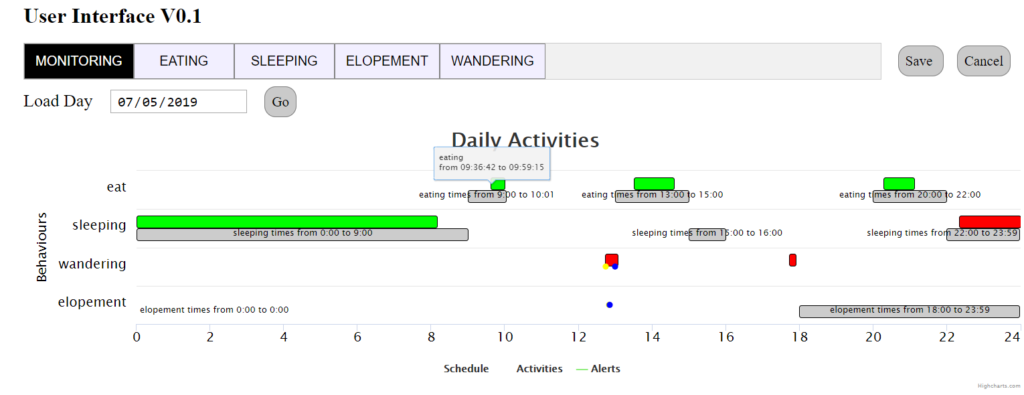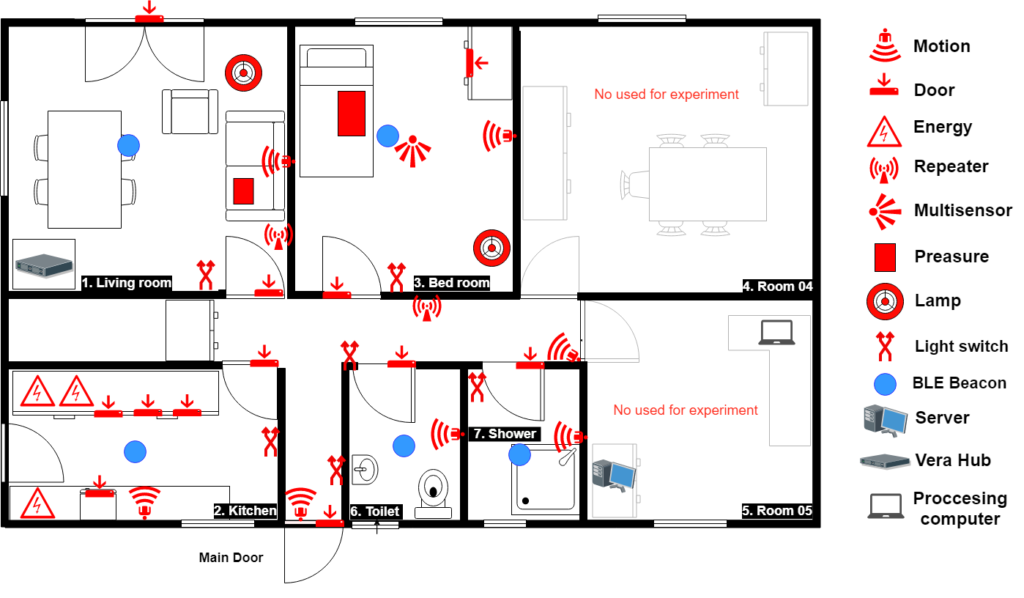Dementia is associated with different conditions, such as Alzheimer’s, is growing fast: by 2050 it is estimated to be around 115 million cases worldwide. The impact of dementia is not just focused on the person who suffers it but relatives and Healthcare system too.
Ambient Assisted Living (AAL) is the Computer Science paradigm focused on supporting the daily life of people with special needs. This area has proposed several solutions, however, most of them are not focused on the primary user but in caregivers and doctors.
The user-centred system presented here aims to:
• Empowering the user living at home, improving the autonomy and self-confidence, avoiding a bigger confusion by moving him to a centre in early dementia stages.
• Supporting the caregivers by reducing the continuous care burden without invading the privacy of the user and without losing safety from monitoring.
• Offering a low-cost system based in latest IoT technologies by reducing health spending associated with other care measures (patient confinement).
An initial pilot has been developed and tested at Middlesex University’s “Smart Spaces Lab” with positive results. The development has been based on a previous literature review about works within AAL and nursing related to dementia. Also, we get continuous feedback from people with experience working with dementia through surveys and system test sessions.
The current pilot deployed contributes to existing knowledge of human behavioural and activities recognition using non-intrusive sensor by providing a real-time interaction with the person with dementia.
The system focuses on the main user, offering autonomy and self-confidence without reducing safety, whilst relieving caregivers of stress and reducing family and healthcare expenses.

